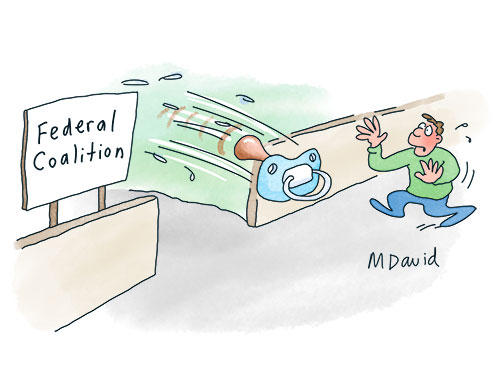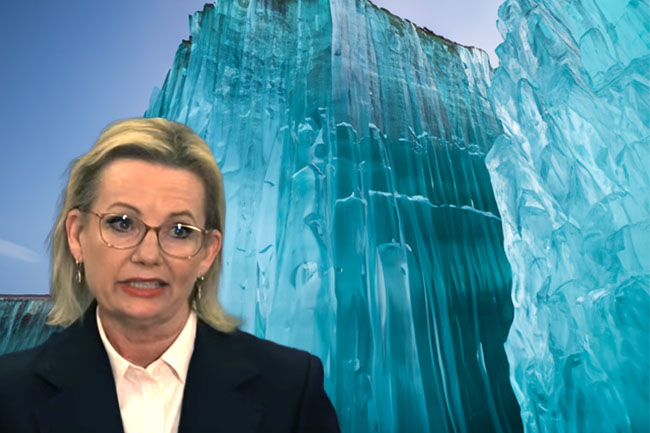Senior editor Michelle Pini speaks with Behrouz Boochani about the five-year anniversary of his incarceration on Manus Island and the release of his book, 'No Friend But the Mountains: Writing from Manus Prison'.
IT REMAINS A COMPLETE MYSTERY how Australia – a nation which wilfully and systematically continues to break international law and torture people with its policy of mandatory offshore detention – has managed to obtain a seat on the United Nations Human Rights Council.
It is a mystery how many Australians are immune to this cruelty, which unfolds daily on Manus Island and Nauru.
Behrouz Boochani tells IA:
“It is an important piece of Australia's history ... I have used the language of literature because I want the book to be for ever.”
We are discussing the release of his book, No Friend But the Mountains: Writing from Manus Prison.
Over the course of our hour-long conversation, Boochani speaks on a mobile phone from Manus Island, where he has spent the last five years of his young life, incarcerated by the Australian Government. His sentence is indefinite. His “crime”, like that of the other remaining refugees held on the island, is seeking asylum on our shores — that is all.
Of course, this is not a crime, but an international legal right under the 1951 Refugee Convention.
Boochani is a Kurdish Iranian scholar with a masters in geopolitics, a writer, journalist, filmmaker, activist and, last week on 23 July, his fifth anniversary in detention also marked his 35th birthday.
The mobile phone on which he speaks to IA is his lifeline to the outside world. With this tool he has created an internationally acclaimed film about Manus prison life, Chauka, please tell us the time. This phone has been confiscated by the Manus guards twice before. Through this one device, Boochani has also painstakingly typed out all 400-odd pages of the manuscript for his book and sent it bit by bit to be translated from his native Farsi.
Boochani explains:
“I wrote the book because I am a novelist. I am a writer. I did not have a choice — I have to write ... I could not use paper because it might be confiscated.”
Speaking with a heavy accent, Boochani is both articulate and disarmingly candid. His voice is soft but commanding and he stops talking often to check that his English has been clear. Throughout the conversation (and the book), there are many glimpses of a sharp and playful wit — of a charismatic young man with an acute intellect that might otherwise be living a free, if not ordinary, life.
He shares his greatest hope:
"To get off this island."
Behrooz Boochani's imprisonment encapsulates all that is wrong with Australia’s asylum seeker policy.
This policy has long been supported by both sides of politics and is now overseen by Australia’s Minister for Home Affairs, Peter Dutton. That the tailored-for-Dutton super ministry – that now includes responsibility for ASIO, the Australian Federal Police, Border Force, the Criminal Intelligence Commission and AUSTRAC – is given such an innocuous title is in itself absurd. But that its overlord is Dutton, who has embraced this mandatory offshore detention policy with the fervour of a religious zealot, and taken the cruelty to new and greater depths, makes it doubly so.
Yesterday (30 July), an inquest into the death of 24-year-old asylum seeker Hamid Kehazaei's death found Australia solely responsible for his "preventable" death.
Twelve people have died while in Australia's "care" in the offshore detention centres of Manus Island and Nauru.
Dutton's blatant disrespect for international law and lack of humanity has continued unabated with the latest example his refusal, just days ago, to sign a global migration agreement which would allow mandatory migration detention only as a last resort.
Dutton said Australia would not
“ ... sign a deal that sacrifices anything in terms of our border protection policies."
Yet Boochani is philosophical:
"Peter Dutton is only one man. There are many politicians supporting him and giving him power. I have no comment about this individual person. He is cruel, but he is only a person. The problem is this system."
No Friend But the Mountains describes the boat journey to Australia and life on Manus in graphic detail, using evocative verse to illustrate the most shocking aspects. And it is a chronicle of lyrical beauty and stark insight. It is also a shocking and shameful indictment of Australia’s indefensible policy of indefinite offshore detention and the brutality that continues to be inflicted on asylum seekers by our Government and in our name.
In his book, Boochani describes the torturous existence on Manus as being 'worse than death' and, during our phone call, he reiterates this:
Manus is the worst kind of torture as we are not free to live our lives. Everything is controlled. When you keep someone locked up for five years like this — they are torturing us. When they don't tell us how many years we will endure. When you don’t know what will happen. When you have lost so many things. When you cannot plan for your future. This is torture.
The ultimate irony is, surely, that Boochani is the recipient of three human rights awards – the Amnesty International Australia 2017 Media Award, the Diaspora Symposium Social Justice Award and the Liberty Victoria 2018 Empty Chair Award – all of which he has received while he continues to be incarcerated at Australia's mercy and is, himself, not afforded the most basic of human rights: freedom.
Boochani says simply:
“Freedom is our right.”
Australia’s sense of its own importance – of an inherent power that is somehow exempt from international law – is perhaps best conveyed in the book when Boochani and others aboard the sinking boat bound for our shores first glimpse the Australian Navy “rescue” vessel:
'The Australian flag waves at the highest point on the ship, waving freely in the wind, with a pomp all its own.'
Perhaps this book, beautifully written, but which, with brutal and arresting honesty, conveys the ugly reality of the suffering inflicted on the 1,650 people remaining on Manus Island and Nauru – including 124 children, 40 of whom have spent their entire lives in offshore detention – and on all those who have been imprisoned in Australia’s offshore gulags, will be the wake-up call Australians need.
It remains a complete mystery that Australia's unconscionable policy of mandatory offshore detention continues without an end in sight.
It remains a shameful mystery that Australians allow it to continue.
Boochani’s hauntingly compelling book will certainly stay with the reader forever.
'No Friend But the Mountains: Writing from Manus Prison' by Behrooz Boochani, Pan Macmillan Australia, is released today.
You can follow senior editor Michelle Pini on Twitter @vmp9.

This work is licensed under a Creative Commons Attribution-NonCommercial-NoDerivs 3.0 Australia License
Monthly Donation
Single Donation
Support freedom. Subscribe to IA.











